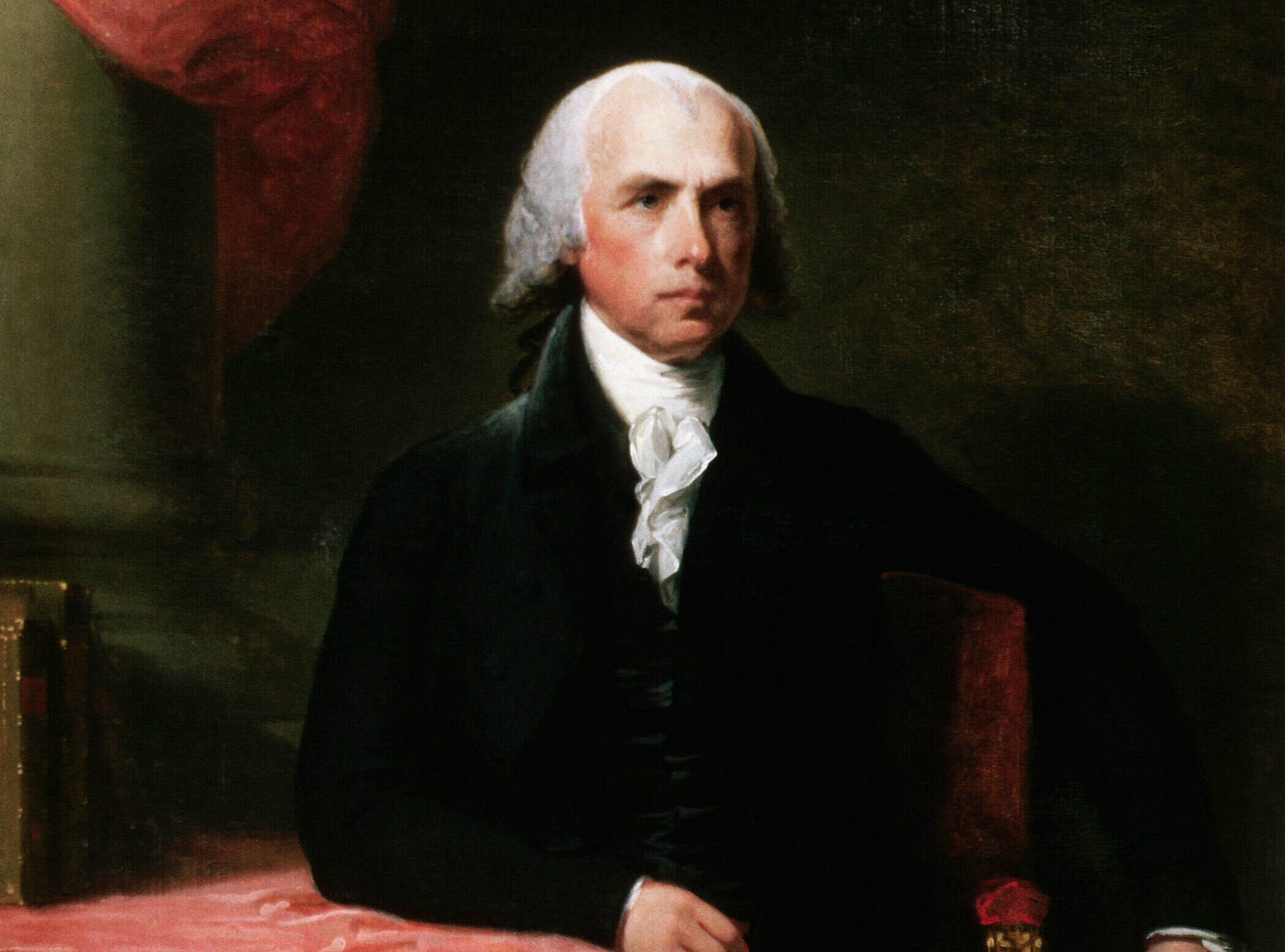‘James Madison’s Vision of Pluralism’
Freedom and faction.

[On the March 4, 2023 episode of The Bulwark’s “The Focus Group” podcast, host Sarah Longwell asked David French to discuss a concept from his book, Divided We Fall: America's Secession Threat and How to Restore Our Nation.]
Sarah Longwell: Towards the end of your book, you lay out what you call “James Madison’s vision of pluralism.” Explain that and why these voters might benefit from a more concrete understanding of pluralism.
David French: So James Madison wrote Federalist No. 10, which is the best Federalist paper—the best Federalist paper. In Federalist 10, what James Madison does is he talks about expanding the sphere of the American republic. In other words, the way that you deal with the dissent and debate and profound disagreements in what he calls the “danger” or the “violence” of faction is not by trying to suppress factions, because then you’re aiming straight at liberty, you’re gunning straight for liberty, which undermines the American republic, the American experiment. So Madison says, you can’t do that.
(Here’s the caveat: This is a guy who was a slave owner, so was he living up to his ideals? No. Are the ideals as described in Federalist 10 good? Yes.)
So what does he say in Federalist 10? He says, what you essentially need to do is to dilute the disruptive power of faction by allowing factions to bloom. In other words, you don’t have to defeat or suppress another person to live according to your core values. The sphere of liberty in the U.S. is broad enough to where a variety of communities can live side by side with each other, people who have dramatically different points of view can live side by side with each other, possess the same amount of liberty, possess the same rights of free association and all of the things that we possess to allow us to create thriving communities. And we expand the sphere, we make the sphere of liberty bigger.
We make the sphere of faction bigger so that we don’t have that zero-sum game where if Democrats win, then somehow my ability to live according to my core values diminishes; or if Republicans win, the Democrats’ ability to live according to their core values diminishes. And so that’s sort of this core vision of pluralism.
And if you look at the Constitution, the Bill of Rights and the Civil War Amendments together are this big one-two punch that says: Here are all of the baseline rights that we have, human rights, that we possess as Americans, that we all possess, and that cannot be taken away by losing an election. They cannot be taken away by living as a red minority in a blue state, or a blue minority in a red state.
If that social compact gets threatened, then we face real problems. And every time we have faced critical, nation-defining problems, it’s when we have violated that social compact. So slavery, for example, violates that social compact in the most dramatic of ways. Jim Crow violated that social compact in the most dramatic of ways.
That is when we’re talking about a situation in which we look at an election as having existential consequences for [our] ability to function within the American social compact, that’s when we’re in a very dangerous place.

